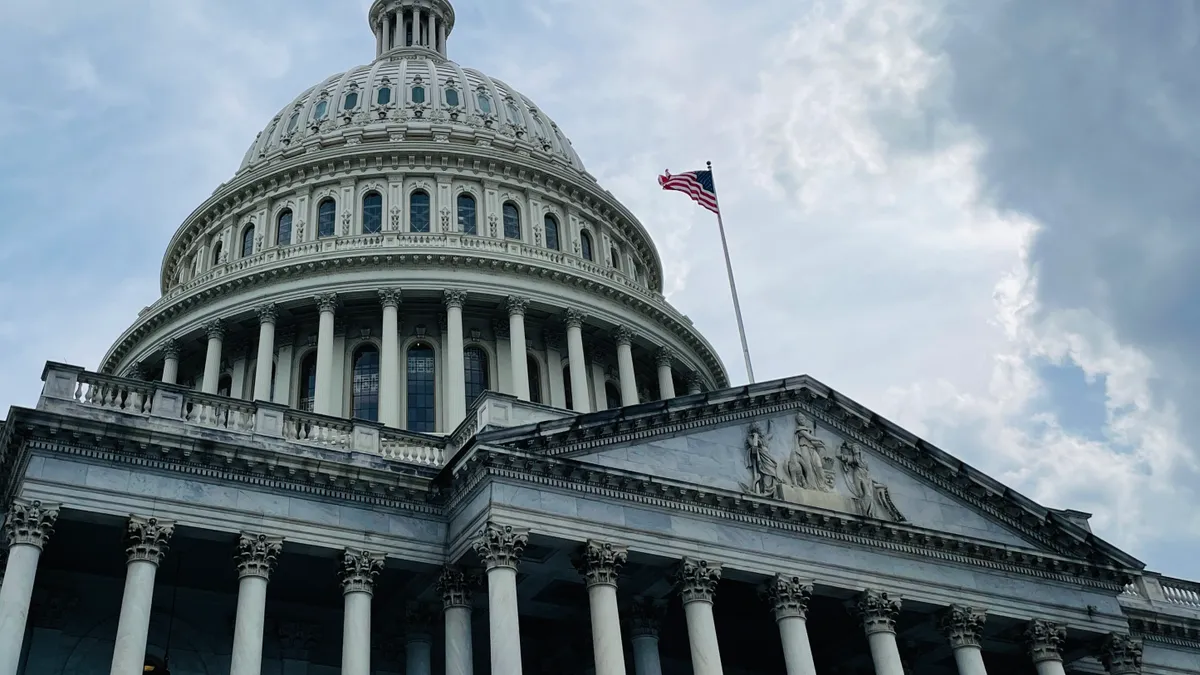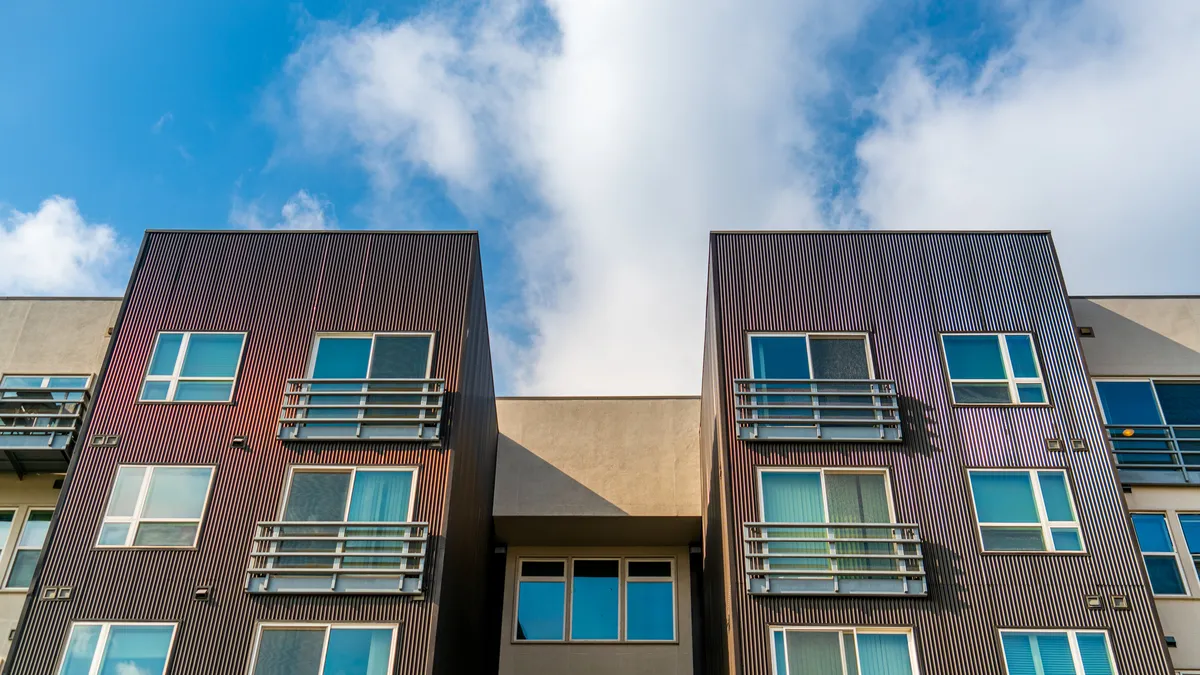Dive Brief:
- Although it's unlikely that the U.S. government will default on its debt, Al Brooks, head of commercial real estate for J.P. Morgan, said that there are still steps multifamily owners should take to prepare for this doomsday economic scenario in a new report.
- Recent interest rate increases have shown the danger in overleveraging properties. The debt ceiling impasse will make that more important. “Lay out a nice cushion above and beyond your debt, so you can pay expenses, pay down debt and continue to accrue liquidity,” Brooks said.
- For borrowers with adjustable rate mortgages, it's imperative to switch to fixed-rate debt if they can. One way to do that may be by shortening the loan term, according to Brooks. "I think it's always smart to take risks you can take off the table," Brooks said. "If you're coming up on a maturity and can make decent returns on your money, switching to a fixed rate could be a smart thing to do."
Dive Insight:
The debt limit is the total amount of money that the United States government is authorized to borrow to meet its legal obligations, including Social Security and Medicare benefits, military salaries, interest on the national debt, tax refunds and other payments, according to the U.S. Treasury Department.
In anticipation of a summer showdown in Congress and the White House over whether to increase the debt limit, the Treasury Department began taking "extraordinary measures," like suspending the daily reinvestment of the Treasury securities held by certain federal employees’ retirement funds, to prevent the United States from defaulting on its debt in January.
J.P. Morgan said the U.S is unlikely to default on its debt and past showdowns have been resolved.
"While we have a highly polarized Congress negotiating, it isn't in either party's interest to let a default happen," Ginger Chambless, head of research for commercial banking at JPMorgan Chase, said in the report.
However, there could be “catastrophic effects, including reduced public confidence and increased market volatility” if there is a default.
"An actual default will throw into question the entire creditworthiness of the United States and likely lead to further rate increases to justify increased risks that bondholders will now have to consider," Victor Calanog, head of commercial real estate economics at Moody's Analytics said in the report. "That will roil capital markets — not just for multifamily and commercial real estate, but every asset class."
Difficult refinancing environment
Even the threat of default can hamper the lending market. The 2011 debt ceiling debate, which caused Standard & Poor's to downgrade the U.S.’s credit rating, was responsible for increasing borrowing costs by $1.3 billion and raising mortgage rates by 0.7 to 0.8 percentage points for two months, according to Moody’s.
If the current political impasse causes an economic downturn, it could be comparable to the global financial crisis, according to the report. Real gross domestic product could fall more than 4%, costing the economy more than 7 million jobs and pushing the unemployment rate over 8%. Stock prices could be cut more than 20%, shaving more than $10 trillion in household wealth.
With even a slim possibility of that potential economic calamity, it's important for apartment owners to try to recession-proof their properties as much as possible. But rising interest rates are already squeezing owners and lenders, making it difficult to set aside money or refinance existing debt.
“If you got into a high-leverage loan, you would have put cash in to refinance out of your old loan and get into a new loan,” said Houston-based Three Pillars CEO Gautam Goyal.
Click here to sign up to receive multifamily and apartment news like this article in your inbox every weekday.











